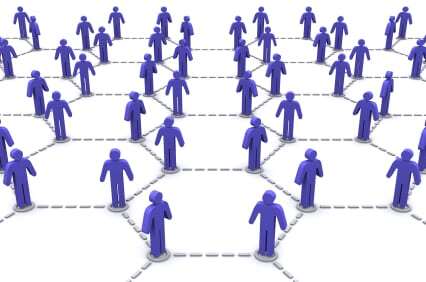The people you knew online seven years ago are a different bunch to the group you now spend most of your time with. That’s the conclusion from an interesting research study conducted in Holland which showed that you lose about half your contacts from your social network every seven years.

Admittedly the study was conducted with “real world” social networks, but the same effect is likely to happen online in places like Facebook and Twitter. What the study implies is that every seven years you will lose half of your online friends. Those contacts you are building up now will be worthless inside seven years. According to the study our social networks are constantly changing and the turmoil is actually much greater than we initially suspect. As we add new members to our community of friends and contacts, we lose others out of the back door.
The study shows that our social networks are not really based on personal choice. Instead they are formed as a result of circumstance. For instance, those people who have remained steadfastly connected to, say, Ecademy (an online business network) are still busy talking with people they met there over the past few years. But the Ecademy users who have also ventured onto Facebook will have found some extra friends simply as a result of adding a new social network system to their routine. And if you have also added Twitter, you’ve got access to a different bunch of people.
What then happens is that you find new and interesting people in these new groups and connect with them more often, leaving behind the people who you have less of a relationship with on another network. The same happens in the “real world”; you start a job and form friendships, then you leave for a new company and you gain new friends, only keeping a few from your previous employment. And so it goes on.
However, there is a difference between the online world and the offline world you should not neglect. In the physical world the reason we lose our friends is that we cannot devote the time and effort needed to keeping them. Travel is one problem because we may move towns to get to new jobs. Another issue is family – when you have children you inevitably get drawn into to schooling activities, providing you with less time to visit older friends.
Online, though, there is the benefit of automation. You can keep in touch with groups of people on different networks much more easily by sharing information between them. If you are not using Ping.fm, for instance, you are wasting a huge amount of time in updating your social networks. It is much easier to “work at” online friendships and relationships than it is in the real world.
However, few people appear to take the necessary steps in order to maintain online social networks over time. Indeed, every social network will tell you that the vast majority of people sign up and then do little with their account. The problem, it seems, is that it is “all too much work”. That means people are likely to have the same “seven year itch” of friendship online as they have offline. But it needn’t be like this.
A social network strategy – such as using Ping.fm, making social networking a routine diary event and taking simple steps to maintain visibility – is all you need to keep your online social networks healthy and surviving for years to come.
